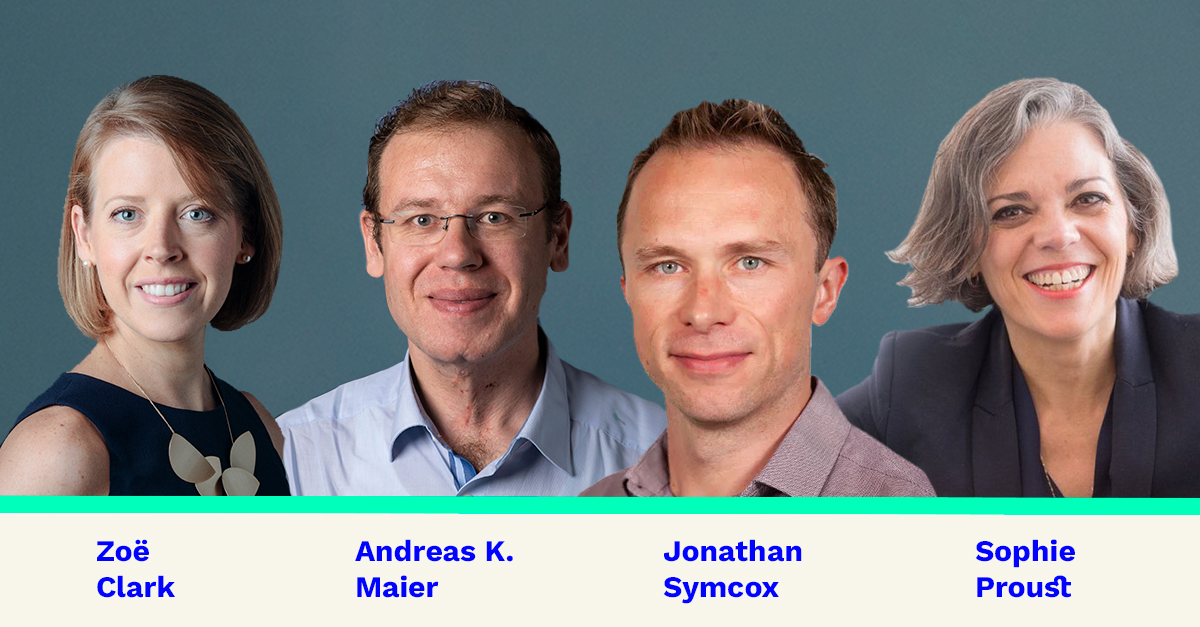Tech 500 podcast: Discussing influence in the European tech world
In late 2021 we launched the fifth annual Tyto Tech 500 Power List, our objective assessment of influence across the pan-European tech sector, now more comprehensive than ever. As we discussed before, for this edition we expanded our analysis of influencers in France from a Top 100 to a Top 500 list, matching the German and United Kingdom lists. We also identified the rise of HealthTech and BioTech, and the GreenTech boom, as well as tracked new technology categories at the cutting edge of science, including quantum computing and SpaceTech.
To carefully address what we learned in our fifth year of the Tech 500 Power List from a different perspective, we launched a special episode of our Without Borders podcast in which we talk about influence and technology trends in Europe with a panel of experts, including three key European influencers identified in our Tech 500 list. These are Sophie Proust, Dr. Andreas K. Maier, and Jonathan Symcox. Sophie, Andreas and Jonathan were joined by our own Zoë Clark, Head of Media and Influence at Tyto. Let’s dive into the podcast highlights and main themes.

Understanding influence in today’s hyperconnected world
From an academic’s perspective, and especially during the pandemic, digital and social media is becoming an important tool to understand influence. Dr. Andreas Maier, our academic representative from the German Influencer list in this episode, is a researcher, professor and Head of the Pattern Recognition lab at the University of Erlangen-Nuremberg. With the start of COVID-19, Andreas and his team began recording lectures and sharing their work to platforms such as YouTube, Twitter and LinkedIn. Conferences were an important part of the knowledge sharing process in the academic world, but as these became less frequent, the online audience for the scientific community grew.
Andreas also explains that “with the increase of open science and open access publishing, people can also download articles and follow the research much better”, which is a great development in his field. This has amplified influence in a more digital-friendly ecosystem, and Andreas shared with us that he is not surprised that many academics are going in this direction.
As explained by our Head of Media and Influence, Zoë Clark, at Tyto we look at influence as a well-rounded or multifaceted concept. To create our Tech 500, we think about relevance, not only influence, and this concept is much more than just having a huge social following. We do analyse an influencer’s social following, but also other factors such as their Google Trends score, the domain authority of the organisation the individual works for, the number of times they have been mentioned in earned media and the reach of those articles, as well as the number of books they have published in the past year. We believe people can influence through different channels, not just social media.
Zoë also stated that “any true influencer never sets out to be an influencer.” A more likely starting point is wanting to change things, and that is something we’ve found all our podcast guests have in common. We believe we need to talk about influence in a human, broad way: however small the audience, it’s about building meaningful relationships, not about consumption or brand loyalty.
The trends that will continue to shape the European tech landscape
An important part of our research and our work as a media relations agency is to identify trends in the technology sector, which is the ecosystem that companies who choose us as consultants navigate on.
Jonathan Symcox, journalist and our UK list representative in this podcast episode, leads tech publications BusinessCloud and TechBlast UK. Jonathan believes there will be an increase in businesses across all sectors – from education to the workplace – experimenting with new technologies, such as artificial intelligence or digital twins. He also states it will be interesting to see how the metaverse develops and interacts with all immersive technologies to create a virtual experience.
When taking into account all the information society has been producing for the past decades, Jonathan points out something that has caught our attention. Data sovereignty is starting to become really important, in an environment where privacy for both users and companies is key in the world of technology. But also, the decentralisation of work environments and the shift to a remote work economy will allow technology to stretch away from cities and “innovation will continue to spread to all corners of the UK, not only London”. This will allow for cities to flatten, to create more opportunities outside of crowded, traditional corporate areas, and for employees to access a better work-life balance.
The influencer perspective of women in tech
For there to be more women and girls in tech, the first thing we need to do is to help spread information about what it means to work in the technology field. Sophie Proust, our business leader representative for France in this episode, has been the Chief Technology Officer of Atos since early 2019. As stated by Sophie, on the one hand, women need to be interested in science and technology, and they need to understand that “this is an area where they can succeed and have fun”. We are truly living in crucial times where we can see how much technologies have a real social impact in our lives and the lives of others. Technology is “more context aware, and there are more immersive experiences that girls can understand and that can be appealing to them,” says Proust.
Once women understand that the field of technology is also an option for them, and an attractive and interesting career alternative with a myriad of different applications, we will have started to build a path for them. And after this, we need to promote them and encourage them in order to have more women in leadership positions. In a truth-laden argument, Sophie states that “we need to understand that leadership does not have to be this immutable stereotype model invented by men.” There is a place in the business world for more collaboration, more listening and empathy, and a more sustainable and inclusive way to drive economic success.
From an academic, business expert or journalist perspective, Andreas, Sophie and Jonathan share so much more that cannot be condensed into this short blogpost. If we’ve piqued your interest in the world of influence within the technology sector, listen to our podcast episode here to learn more about these influencers’ unique points of view.
And if you are not yet familiar with the Tyto Tech 500 Power List, get to know the main tech influencers in Europe and discover the trends that have transformed the tech sector in 2021 with this podcast episode featuring bestselling author of Make It, Don’t Fake It: Leading with Authenticity for Real Business Success, Sabrina Horn and three Tyto media experts from the UK, France and Germany.
Featured image credits: James Padolsey, Unsplash











